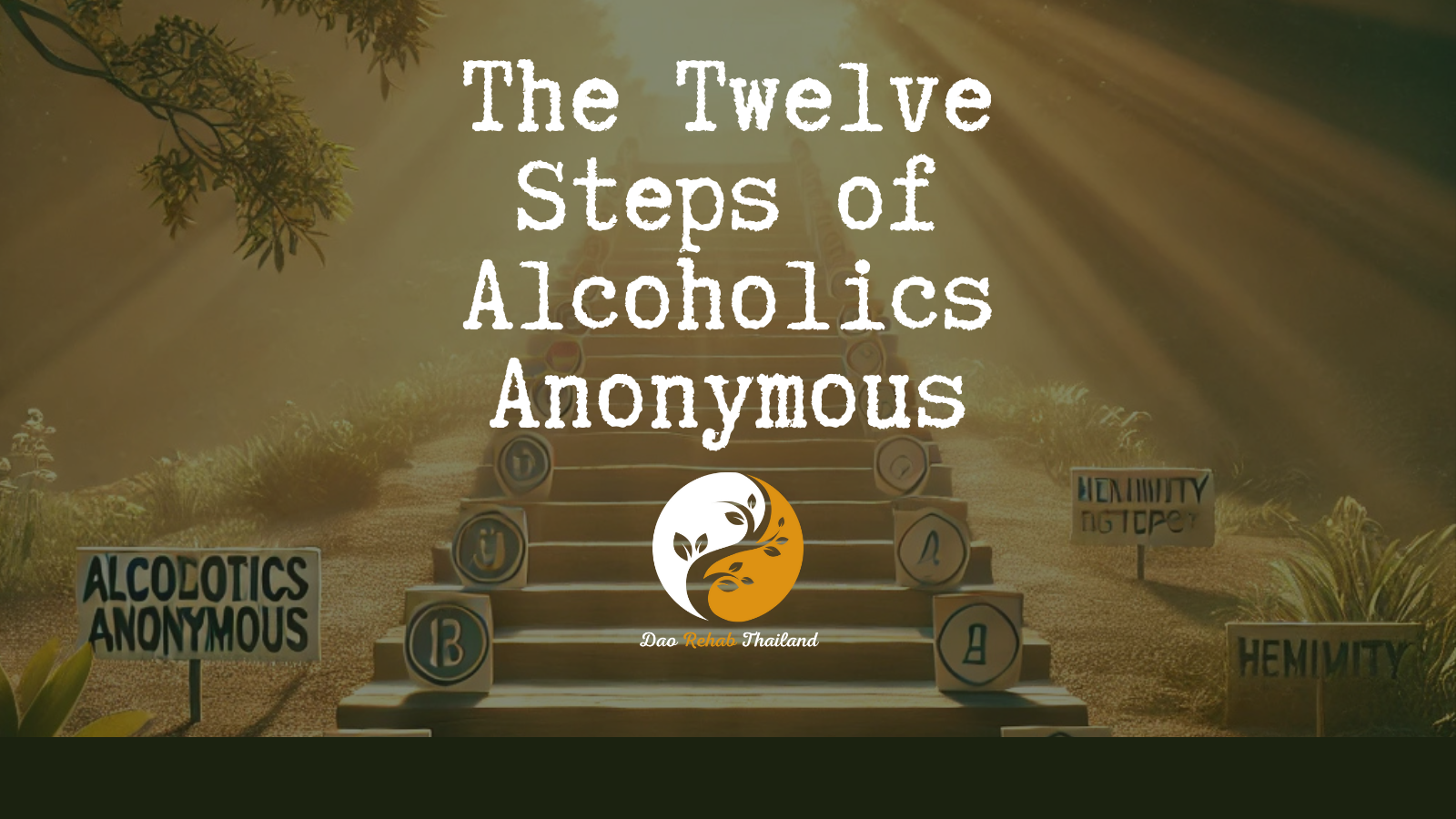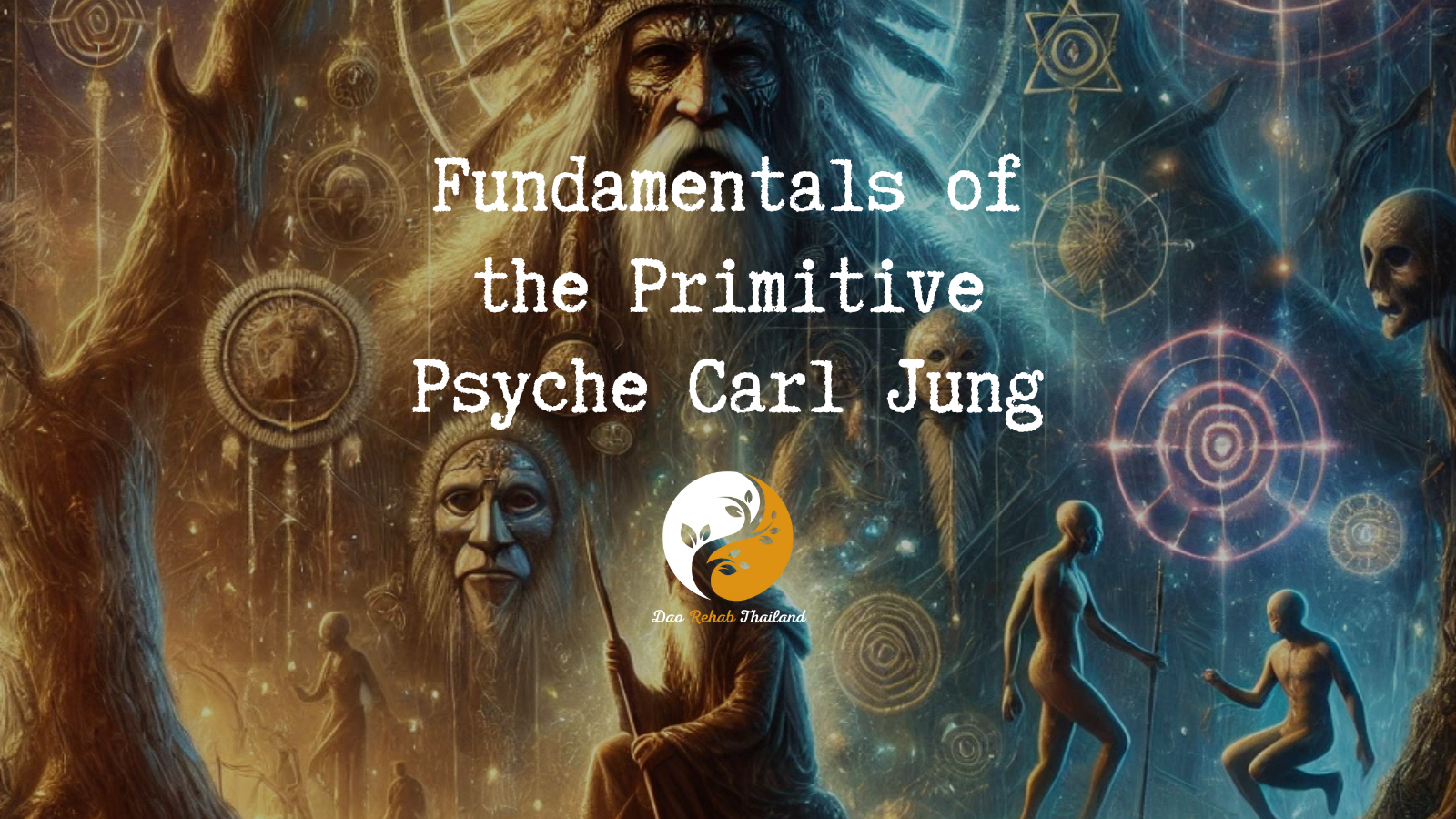
The Promises of AA’s Big Book
The Promises of AA's Big Book
“Turning the impossible into possible”

"Detox from drugs at a Luxury Holistic Center in Thailand and Israel"

The Promises of AA's Big Book
- Alcoholics Anonymous—commonly referred to as AA—was founded in 1935 in Akron, Ohio, by Bill W. and Dr. Bob Smith.
- AA’s primary purpose is to help alcoholics* achieve sobriety, and provides a self-supporting infrastructure where alcoholics help others in their goal to quit drinking.
"Holistic Center for Trauma, Addiction, and Mental Imbalance Treatment in Thailand"
“Come to the beginning of your journey to freedom from addiction to alcohol, drugs, and pills, and rediscover your life within the serene embrace of DaoTherapy Rehab in Thailand—where holistic healing meets empowering recovery.”
DaoTherapy Holistic Rehab
Key Elements of drugs Detox:
Medical Supervision: drugs detox must be conducted under medical supervision, as the body may experience withdrawal symptoms. These can include nausea, anxiety, muscle aches, and insomnia. A medical team will monitor and manage these symptoms to ensure the patient’s safety and comfort.
Holistic Therapies:
Holistic Therapies: Many detox programs incorporate holistic therapies such as mindfulness, yoga, and meditation to help individuals cope with stress and anxiety during the detox process. These therapies support the mind-body connection and contribute to overall recovery.
Tapering Process
Tapering Process: drugs detox often involves a gradual tapering of the drug to reduce withdrawal severity. Doctors will slowly decrease the dosage over time to allow the body to adjust to lower levels of the substance.
Psychological Support:
Psychological Support: Like any addiction recovery process, detox from drugs includes psychological support. This can involve counseling, therapy, or support groups to address the mental and emotional aspects of addiction.
Post-Detox Treatment:
Post-Detox Treatment: After completing detox, continuing treatment is crucial to prevent relapse. This often includes participation in ongoing therapy, group support, and the development of new coping strategies to maintain sobriety.
The basics of AA, the Big Book and the Promises found within
Alcoholics Anonymous (AA) is a global fellowship that helps individuals struggling with alcoholism achieve and maintain sobriety through mutual support, a structured program of recovery, and personal growth. Here’s an overview of the basics of AA, the foundational text known as the Big Book, and the Promises that offer hope and encouragement within the program.
1. The Basics of AA
- Purpose: AA was founded in 1935 to help people with alcohol dependency find sobriety through peer support and a structured program of recovery. The AA fellowship encourages abstinence from alcohol and personal responsibility.
- Meetings: AA meetings provide a supportive environment where individuals share their experiences, challenges, and successes with others who have similar struggles. Meetings can be “open” (anyone can attend) or “closed” (only for those who identify as having a drinking problem).
- 12-Step Program: The foundation of AA is the 12-step program, a series of spiritual and personal principles designed to help members admit powerlessness over alcohol, seek help, make amends, and maintain a sober and purposeful life. Each step emphasizes acceptance, self-reflection, and spiritual growth.
- Sponsorship: Members are encouraged to find a sponsor—a more experienced member who guides them through the 12 steps, offering support, advice, and encouragement throughout recovery.
2. The Big Book of Alcoholics Anonymous
- History and Purpose: Published in 1939, the Big Book (officially titled “Alcoholics Anonymous”) is the foundational text of AA, authored primarily by co-founder Bill Wilson. It outlines the philosophy, principles, and practices of AA and serves as a guide for understanding addiction and the path to recovery.
- Content: The Big Book is divided into several sections:
- Personal Stories: First-person accounts of individuals who overcame alcoholism through AA, illustrating the impact of the program.
- The Program of Recovery: The book explains the 12 steps and provides guidance on how to work through each step. It emphasizes honesty, acceptance, spiritual growth, and helping others.
- The Doctor’s Opinion: A section by Dr. William Silkworth explains alcoholism as a disease rather than a moral failing, which was a groundbreaking concept at the time.
- Spiritual and Practical Guidance: The Big Book discusses the importance of spirituality, a higher power, and practical tools like prayer and meditation.

contact us
Contact us with your questions
We would love to speak with you! Feel free to reach out with any questions.

get in touch
Schedule a free consultation
Schedule a free consultation with our team and let’s make things happen!
The Promises of AA
The Promises are a series of positive outcomes described in the Big Book, which members may experience as they progress through the 12 steps. These Promises are often read at AA meetings for inspiration and hope. They’re found in Chapter 6, “Into Action,” and include assurances of improved mental, emotional, and spiritual well-being. While they’re not guaranteed for every member, the Promises serve as a source of motivation and hope for those who embrace the program. Here are some key Promises:
- Freedom and Happiness: “We will be amazed before we are halfway through. We are going to know a new freedom and a new happiness.”
- No Regret of the Past: “We will not regret the past nor wish to shut the door on it.”
- Serenity and Peace: “We will comprehend the word serenity and we will know peace.”
- Self-Acceptance: “No matter how far down the scale we have gone, we will see how our experience can benefit others.”
- Freedom from Self-Pity: “That feeling of uselessness and self-pity will disappear.”
- Improved Relationships: “Our whole attitude and outlook upon life will change. Fear of people and of economic insecurity will leave us.”
- Living in the Present: “We will intuitively know how to handle situations which used to baffle us.”
- Spiritual Connection: “We will suddenly realize that God is doing for us what we could not do for ourselves.”
These Promises inspire hope by reminding members of the potential rewards of working through the steps and committing to sobriety.
Summary
AA provides a structured, supportive environment for individuals recovering from alcoholism. The 12-step program, outlined in the Big Book, encourages personal and spiritual growth. The Promises offer hope, highlighting the positive changes members may experience as they work through the program and transform their lives. Through these elements, AA supports members on their journey to sobriety and a more fulfilling life.
The Promises of AA
Promise 1: We are going to know a new freedom and a new happiness.
Promise 2: We will not regret the past nor wish to shut the door on it.
Promise 3: We will comprehend the word serenity.
Promise 4: We will know peace.
Promise 5: No matter how far down the scale we have gone, we will see how our experience can benefit others.
Promise 6: The feeling of uselessness and self-pity will disappear.
Promise 7: We will lose interest in selfish things and gain interest in our fellows.
Promise 8: Self-seeking will slip away.
Promise 9: Our whole attitude and outlook upon life will change.
Promise 10: Fear of people and economic insecurity will leave us.
Promise 11: We will intuitively know how to handle situations which used to baffle us.
Promise 12: We will suddenly realize that God is doing for us what we could not do for ourselves.
What do the Promises mean?
The Promises of Alcoholics Anonymous are a set of positive outcomes described in the Big Book (Chapter 6, “Into Action”) that offer hope, inspiration, and a vision of the transformation possible through the 12-step program. The Promises reflect deep changes in emotional, mental, and spiritual well-being, often occurring as individuals work through the steps, specifically steps 4-9, which focus on self-examination, making amends, and accepting a higher power. Here’s a deeper look at the meaning behind each of the Promises:
1. “We will be amazed before we are halfway through.”
- Meaning: This Promise suggests that the benefits of the 12-step program will become evident relatively quickly. Members often experience positive changes early in their recovery, showing them that progress is possible and motivating them to continue.
2. “We are going to know a new freedom and a new happiness.”
- Meaning: Freedom from the obsession with alcohol brings a profound sense of liberation and joy. This freedom extends to freedom from guilt, shame, and emotional burdens that once weighed members down, allowing a renewed sense of happiness.
3. “We will not regret the past nor wish to shut the door on it.”
- Meaning: By working through the steps, members come to terms with their past mistakes and painful experiences. Instead of being sources of shame, these experiences become opportunities for growth and compassion, allowing members to help others with similar struggles.
4. “We will comprehend the word serenity and we will know peace.”
- Meaning: Recovery brings a deeper understanding of inner peace and calm. Members often feel less turmoil and anxiety, allowing them to experience true serenity, often for the first time in their lives.
5. “No matter how far down the scale we have gone, we will see how our experience can benefit others.”
- Meaning: This Promise speaks to the value of sharing one’s story to help others. Even those who feel they’ve hit rock bottom realize that their experiences can inspire and guide others toward recovery, making their journey meaningful and valuable.
6. “That feeling of uselessness and self-pity will disappear.”
- Meaning: As members work through the steps, they begin to feel a sense of purpose and worth. This newfound purpose and self-respect replace feelings of self-pity and hopelessness, fostering confidence and a positive outlook.
7. “We will lose interest in selfish things and gain interest in our fellows.”
- Meaning: The program encourages members to shift focus from self-centered behaviors to caring for others. This outward focus helps create a life filled with meaning and connection, reducing feelings of loneliness and isolation.
8. “Self-seeking will slip away.”
- Meaning: As the desire for personal gain and self-centered goals fades, members begin to find satisfaction in helping others, practicing humility, and embracing a new, more fulfilling way of life.
9. “Our whole attitude and outlook upon life will change.”
- Meaning: Recovery brings a shift in perspective, where members move from pessimism, fear, and resentment to optimism, gratitude, and acceptance. This transformation changes how they approach life’s challenges.
10. “Fear of people and of economic insecurity will leave us.”
- Meaning: Working the program helps members develop trust in themselves and their higher power, reducing fears related to social interactions, financial worries, and uncertainty. As they become more self-assured and responsible, these fears diminish.
11. “We will intuitively know how to handle situations which used to baffle us.”
- Meaning: Recovery helps members develop a strong sense of intuition and confidence. This enables them to respond to challenging situations with clarity and calm, whereas in the past, they may have felt overwhelmed or confused.
12. “We will suddenly realize that God is doing for us what we could not do for ourselves.”
- Meaning: Many members interpret this as the influence of a higher power guiding them through recovery. Recognizing this guidance can bring a sense of humility, gratitude, and awe, reinforcing the spiritual foundation of their recovery.
What the Promises Mean Collectively
The Promises paint a picture of hope and profound transformation. They suggest that sobriety, achieved through the 12 steps, offers far more than the absence of alcohol—it brings emotional healing, spiritual growth, and an enhanced quality of life. While these Promises are not guaranteed and take time to realize, they provide motivation, showing members that deep, positive change is possible. Through this process, individuals not only gain sobriety but also rediscover their true selves, leading to a life that feels purposeful, connected, and fulfilling.
Psychological Support:
Psychological Support: Like any addiction recovery process, detox from Subutex includes psychological support. This can involve counseling, therapy, or support groups to address the mental and emotional aspects of addiction.
Why the AA Promises are important
The AA Promises are important because they provide hope, motivation, and a sense of purpose to individuals in recovery. They serve as a vision of the positive changes that can occur through the 12-step process, offering encouragement to those who may feel hopeless or uncertain about their ability to overcome addiction. Here’s why the Promises hold such significance within the AA program:
1. Offering Hope in Recovery
- Hope for Transformation: The Promises describe a profound shift in one’s life, moving from the darkness of addiction to a place of peace, freedom, and self-worth. For people who feel trapped by alcoholism, the Promises serve as a powerful reminder that change is possible.
- Encouraging Perseverance: The path to recovery is challenging, but the Promises give individuals something to look forward to, encouraging them to keep working through the steps even when the process feels difficult.
2. Providing Motivation to Work the 12 Steps
- Purpose and Focus: The Promises show members what they might gain if they commit to the program, motivating them to fully engage with the 12 steps.
- Building Trust in the Program: Seeing the Promises fulfilled in others who have completed the steps helps new members trust the process and inspires them to stay committed, knowing that they, too, can experience positive change.
3. Reinforcing the Power of Personal and Spiritual Growth
- Emphasizing Inner Change: The Promises highlight that sobriety is more than just abstaining from alcohol; it involves deep emotional and spiritual growth. This shift from focusing on external changes to inner transformation is central to AA’s approach.
- Promoting a Spiritual Foundation: Many Promises reflect spiritual principles, such as serenity, self-acceptance, and a connection to a higher power. This spiritual foundation provides a new source of strength and guidance in recovery.
4. Fostering a Positive Outlook
- Replacing Fear with Optimism: Addiction is often marked by fear, shame, and insecurity. The Promises describe a life free from these burdens, where individuals can feel confident, connected, and at peace.
- Encouraging Self-Worth and Confidence: By describing a future where members feel valuable and purposeful, the Promises help shift their mindset from self-pity and guilt to self-respect and empowerment.
5. Building Community and Shared Vision
- Connecting with Others’ Experiences: The Promises create a shared vision that binds the AA community together, allowing members to see that they are not alone in their journey. The experiences described in the Promises resonate with many, helping to build connection and unity within the group.
- Inspiring Service to Others: Many Promises emphasize the importance of helping others, a cornerstone of AA’s philosophy. They remind members that by sharing their own recovery journey, they can inspire and support others, creating a cycle of giving and receiving help.
6. Offering Reassurance of Progress
- Measuring Growth: The Promises serve as markers of personal progress, allowing members to recognize the positive changes they are experiencing as they work the steps. This reassurance can be vital for people who may feel doubtful or struggle to see their own progress.
- Encouragement During Difficult Times: When recovery feels challenging, reflecting on the Promises can remind members of the rewards that await them, giving them the strength to keep moving forward.
7. Emphasizing Long-Term Fulfillment
- Beyond Sobriety: The Promises highlight the long-term benefits of sobriety, showing that recovery is not just about quitting drinking but about living a more fulfilling, meaningful life.
- Creating a Vision for the Future: By envisioning a life of serenity, happiness, and peace, members are inspired to continue their recovery journey, knowing they can achieve lasting joy and stability.
Conclusion
The AA Promises are essential because they represent the profound, positive changes that can come from working the 12 steps. They provide hope, reinforce the value of personal growth and spirituality, and offer reassurance that life in recovery can be deeply rewarding. Through the Promises, members gain the encouragement and motivation to pursue a sober life that feels purposeful, connected, and fulfilling.








